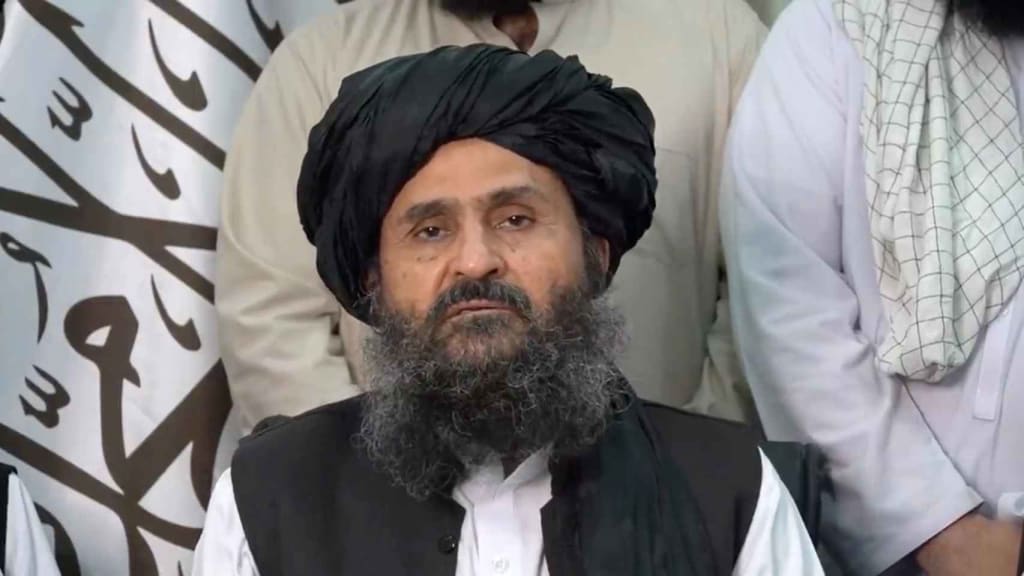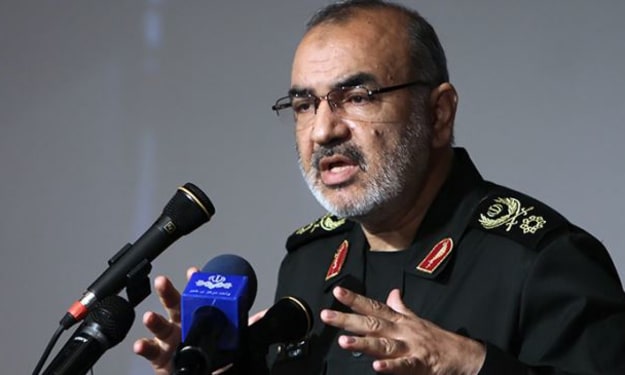Unmasking the Dark Legacy of Haibatullah Akhundzada
A Terrorist's Biography

In the shadowy world of terrorism, certain individuals emerge whose names strike fear into the hearts of millions. Among them is Haibatullah Akhundzada, a key figure in the Taliban insurgency in Afghanistan, whose rise to power has been marked by violence, oppression, and a relentless pursuit of extremist ideology. While some may attempt to sanitize his actions or portray him as a righteous defender of Islam, the truth reveals a much darker reality—a man whose cruelty knows no bounds, and whose legacy is stained with the blood of innocent victims.
Born in 1961 in the Kandahar province of Afghanistan, Haibatullah Akhundzada was raised in a deeply conservative and religiously fundamentalist environment. From a young age, he was steeped in the teachings of the Taliban, a radical Islamist movement that emerged in the wake of the Soviet invasion of Afghanistan and the subsequent civil war that ravaged the country.
Akhundzada's early years were defined by his unwavering devotion to the Taliban's extremist ideology, which advocated for the imposition of strict Sharia law and the establishment of a totalitarian Islamic state. He quickly rose through the ranks of the organization, earning a reputation for his fierce loyalty to its founder, Mullah Mohammad Omar, and his ruthless enforcement of its draconian decrees.
As the Taliban gained control over large swathes of Afghanistan in the 1990s, Akhundzada emerged as a key figure within the movement, wielding considerable influence over its religious and judicial affairs. He played a central role in implementing the Taliban's brutal interpretation of Islamic law, which included the public execution of alleged criminals, the suppression of women's rights, and the persecution of religious and ethnic minorities.
But it was Akhundzada's tenure as the supreme leader of the Taliban, a position he assumed in 2016 following the death of his predecessor, Mullah Akhtar Mansour, that would cement his reputation as one of the most feared and reviled figures in the global jihadist movement. Under his leadership, the Taliban intensified its campaign of terror and violence, launching a series of devastating attacks against Afghan civilians, security forces, and international aid workers.
One of the most notorious examples of Akhundzada's cruelty and disregard for human life came in August 2021, when the Taliban seized control of Kabul, the capital of Afghanistan, following the withdrawal of US and NATO forces from the country. In the chaotic aftermath of the takeover, reports emerged of Taliban fighters carrying out summary executions, arbitrary arrests, and mass atrocities against civilians, including women and children.
Akhundzada's response to these reports was characteristically callous and uncompromising, with the Taliban leadership issuing stern warnings to those who dared to oppose their rule. Dissent was swiftly crushed, with anyone suspected of opposing the regime facing harsh reprisals, including torture, imprisonment, and death.
But perhaps the most egregious example of Akhundzada's cruelty and disregard for human life came in September 2021, when the Taliban announced the formation of a new government composed entirely of hardline Islamist extremists, many of whom were implicated in egregious human rights abuses during the Taliban's previous stint in power from 1996 to 2001. Among those appointed to key positions in the government were individuals with known ties to terrorist organizations such as al-Qaeda, raising fears that Afghanistan would once again become a safe haven for international terrorists.
As the world looked on in horror, Akhundzada and his fellow Taliban leaders wasted no time in imposing their draconian vision of Islamic law on the people of Afghanistan, rolling back decades of progress in women's rights, education, and civil liberties. Women and girls were barred from attending school or working outside the home, while dissenting voices were silenced through intimidation, violence, and the imposition of medieval punishments such as stoning and amputation.
Despite the international outcry over the Taliban's brutal rule, Akhundzada remained defiant, dismissing criticism from the West as the product of Western imperialism and vowing to continue the Taliban's jihad until Afghanistan was fully liberated from foreign influence. His rhetoric was laced with religious fervor, invoking the name of Allah to justify his regime's reign of terror and oppression.
But for all his claims of religious piety and moral righteousness, Akhundzada's actions speak louder than words. Under his leadership, the Taliban has become synonymous with cruelty, barbarism, and the wholesale violation of human rights. His regime's brutal crackdown on dissent and its systematic persecution of religious and ethnic minorities have drawn condemnation from human rights organizations around the world, who have accused the Taliban of committing war crimes and crimes against humanity on a massive scale.
In the end, the story of Haibatullah Akhundzada is one of darkness and despair, a cautionary tale of the dangers of extremism and the consequences of unchecked power. His legacy is one of bloodshed and suffering, a reminder of the human cost of fanaticism and the need for vigilance in the face of tyranny.
About the Creator
Sahil Lathwal
I'm Sahil, a passionate writer. My voice weaves stories, emotions, and melodies into an enchanting tapestry. Welcome to my world of creativity and expression. 🎶📝🎤





Comments
There are no comments for this story
Be the first to respond and start the conversation.